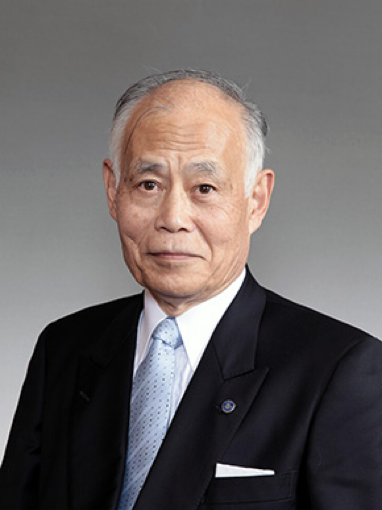(Coming Soon) Call For Papers
Special Lecture
Program Registration & SubmissionVenues & Locations Accommodations
(Coming Soon) Special Issue of ISCIE Conference Organization Contact Us SSS Top Page
The 55th ISCIE International Symposium on Stochastic Systems Theory and Its Applications
Special Lecture:
Control Problems from Pendulum to COE Projects (SMS and HAM)
-Super Mechano-Systems and Human Adaptive Mechatronics-
Katsuhisa Furuta
President Emeritus, Tokyo Denki University
Professor Emeritus, Tokyo Institute of Technology

Brief Contents
Intelligent systems have the abilities to adapt to the varying
environment by using communication and control based on the measured
and collected data through computers network. Cybernetics was defined
by N. Wiener as ``the science of control and communication, in the
animal and machine'' (W.R. Ashby). Automatic control is nowadays used
not only in the factory for automation but also in consumer products
like automobiles for driving support, and becomes to utilize the
machine learning and data-driven engineering.
The automatic control had been developed historically in the separate
technical fields like steam engines and feedback amplifiers for long
distance telephony, and was born as a separate engineering discipline
around the time of World War II in USA. At that time, the specialists
in telecommunication and servomechanism were brought together by the
pressure of the war and gave birth the automatic control as a
discipline. N. Wiener engaged in the predicting the target position
from past observation for the fire-control.
In 1960, the first IFAC Congress was held in Moscow, and R. E. Kalman
presented the paper entitled ``On the General Theory of Control
Systems'' which gave the idea of the controllability and observability
based on the state space representation of the systems. He intended to
initiate the pure theory of control by the paper. Based on the state
space approach, the control theory has been developed since then. In
the first part of the talk, the historical development of the
Automatic control is presented with several photos.
In the second part, the control of the pendulum is presented from the
stabilization of a simple pendulum and multiple pendulums to the
swing-up of double pendulums. The control of the rotating type
pendulum named Furuta pendulum is discussed and the movement of the
pendulum under control shall be shown by Video.
In the third part, COE projects of SMS and HAM (Super Mechano-Systems
and Human Adaptive Mechatronics) shall be introduced by presenting
their ideas and several results of the projects, Super Mechano- System
is defined as the system which autonomously organize themselves by
changing their structure and functions to attain higher performance
for a given objectives in the varying environment. HAM consists of
intelligent mechanical systems adapting themselves to the human's
skill under various environments and changing their shapes and
functions automatically to bring out best performance. Some results
of the projects shall be introduced.
In the fourth part, the idea of the Capsubot which has been given
birth in HAM project is introduced and recent research development
shall be presented. The conclusion is that the new idea and
development shall be brought by mixing different disciplines.
Biography
Dr. Katsuhisa Furuta is one of Japan's leading experts in control
engineering and robotics. He received his doctorate in engineering
from the Tokyo Institute of Technology in 1967 and served as professor
at the Tokyo Institute of Technology, Tokyo Denki University, and its
president. The rotational type of inverted pendulum he developed for
verification of nonlinear control is known worldwide as the Furuta
Pendulum.
He has made numerous achievements in system identification, nonlinear
control including sliding mode, and robot and mechatronics, and has
proposed concepts such as Super Mechano-System and HAM (Human Adaptive
Mechatronics). He was a leader of the COE Research Program at Tokyo
Institute of Technology, the 21st Century COE Program at Tokyo Denki
University, and the JST Humanitarian Anti-Personnel Mine Detection and
Clearance Technology Research and Development Promotion Project. He
has also contributed to education and has fostered many researchers in
the fields of control and mechatronics.
Dr. Furuta has also received numerous awards for his achievements,
including the 1999 IEEE CSS Distinguished Member Award, 2000 Third
Millennium Medal, and 2021 SICE Outstanding Contribution Award, and so
on. In 2017, he was awarded the Order of the Sacred Treasure, Gold
Rays with Neck Ribbon, and honorary doctorates from Helsinki
University of Technology and Tallinn University of Technology.
Copyright© 2023 Stochastic Systems Symposium, All Rights Reserved.